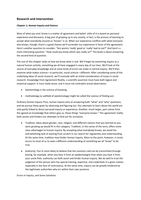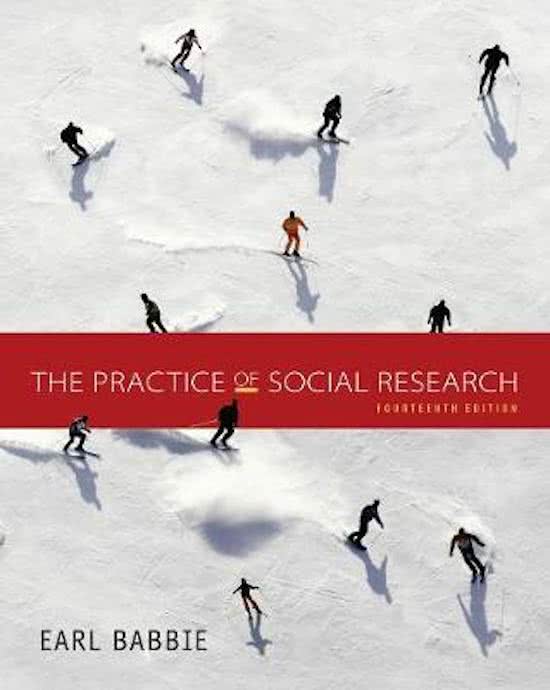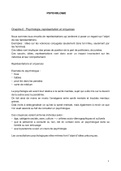Research and Intervention
Chapter 1; Human Inquiry and Science
Most of what you and I know is a matter of agreement and belief. Little of it is based on personal
experience and discovery. A big part of growing up in any society, in fact, is the process of learning to
accept what everybody around us “knows” is so. When our experience conflicts with what everyone
else knows, though, there’s a good chance we’ll surrender our experience in favor of the agreement.
Here’s another question to consider: “Are worms ‘really’ good or ‘really’ bad to eat?” And here’s a
more interesting question: “How could you know which was really so?” This book is about answering
the second kind of question.
The rest of this chapter looks at how we know what is real. We’ll begin by examining inquiry as a
natural human activity, something we all have engaged in every day of our lives. We’ll look at the
source of everyday knowledge and at some kinds of errors we make in normal inquiry. We’ll then
examine what makes science—in particular, social science—different. After considering some of the
underlying ideas of social research, we’ll conclude with an initial consideration of issues in social
research. Knowledge from Agreement Reality. a scientific assertion must have both logical and
empirical support: It must make sense, and it must not contradict actual observation.
Epistemology is the science of knowing;
methodology (a subfield of epistemology) might be called the science of finding out.
Ordinary Human Inquiry Thus, human inquiry aims at answering both “what” and “why” questions,
and we pursue these goals by observing and figuring out. Our attempts to learn about the world are
only partly linked to direct personal inquiry or experience. Another, much larger, part comes from
the agreed on knowledge that others give us, those things “everyone knows.” This agreement reality
both assists and hinders our attempts to find out for ourselves.
Tradition; Ideas about gender, race, religion, and different nations that you learned as you
were growing up would fit in this category. Tradition, in this sense of the term, offers some
clear advantages to human inquiry. By accepting what everybody knows, we avoid the
overwhelming task of starting from scratch in our search for regularities and understanding.
At the same time, tradition may hinder Human inquiry. More to the point, however, it rarely
occurs to most of us to seek a different understanding of something we all “know” to be
true.
Authority; You’re more likely to believe that the common cold can be transmitted through
kissing, for example, when you hear it from an epidemiologist than when you hear it from
your uncle Pete. authority can both assist and hinder human inquiry. We do well to trust the
judgment of the person who has special training, expertise, and credentials in a given matter,
especially in the face of controversy. At the same time, inquiry can be greatly hindered by
the legitimate authorities who err within their own province.
Errors in Inquiry, and Some Solutions.







